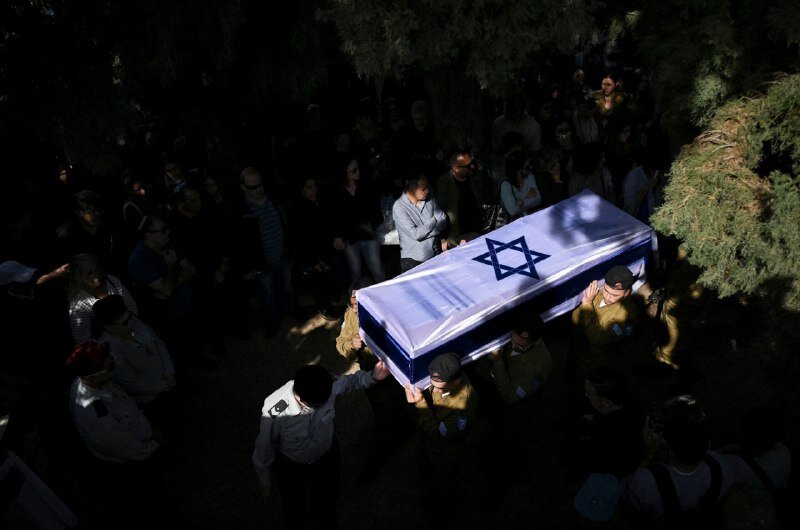Smokescreen for battlefield failure
U.S. pushes for Gaza truce as Israel fails to defeat Hamas

TEHRAN- More than 150 days have passed since Israel launched its genocidal war on the Gaza Strip which has claimed the lives of nearly 31,000 people and left tens of thousands of others injured.
According to the United Nations, Gaza is one step away from famine as Israel continues to block the entry of essentials such as food and medicines. Israeli forces have also perpetrated massacres by targeting hungry people who wait for food aid.
Since the start of the Israeli onslaught on October 7, Prime Minister Benjamin Netanyahu has vowed to continue the war until “total victory” over Hamas.
But the Israeli army has so far failed to bring Hamas to its knees which highlights the resistance movement’s invincibility.
Nearly 250 Israeli troops have also been killed in the Israeli ground offensive in Gaza since late October.
Israel’s failure to defeat Hamas has recently raised deep concerns in the U.S.? prompting the Whtie House to double down on calls for reaching a ceasefire in Gaza before the Islamic holy month of Ramadan which starts on March 10.
This week, the United States along with Qatar and Egypt mediated two-day truce negotiations in Cairo. Reports suggested that the talks aimed at reaching a temporary ceasefire broke up with no breakthrough. Hamas negotiators, however, remained in Cairo on Tuesday for more talks at the request of mediators.
Hamas presented its proposal for a ceasefire agreement to the mediators.
It has called for a comprehensive ceasefire, the withdrawal of Israeli troops from Gaza, the return of the displaced to the north and the entry of humanitarian aid.
But, senior Hamas official Bassem Naim said Netanyahu does not want to reach an agreement.
“The ball now is in the Americans’ court to press him for a deal,” he added.
Israel declined to send a delegation to the Cairo talks due to what it called Hamas’s failure to produce a list of living captives in Gaza.
Hamas carried out an attack in southern Israel on October 7, which was followed by Israel’s onslaught. More than 1,100 people were killed in the Hamas military operation.
Roughly 250 others were taken captive. Hamas released over 100 of them in a prisoner swap deal with Israel in November. Currently, 130 captives remain in Gaza, including around 30 who are presumed dead. Some of the captives have been killed in Israeli attacks against the Gaza Strip.
Hamas has presented convincing arguments for failing to present a list of the captives who are alive.
“It is now impossible to know exactly who is still alive and who has been killed because of the Israeli bombardment or who has been killed because of starvation because of the Israeli blockade,” Naim told the BBC in an interview published Monday.
Hamas says if a truce is reached it will be able to establish which captives are alive.
The talks in Egypt were aimed at establishing a six-week ceasefire based on which Hamas would free up to 40 captives in exchange for the release of 300 Palestinian prisoners held in Israeli jails, according to officials in Cairo.
The United States has been fully supporting Israel politically and militarily since the regime launched war on Gaza.
But, officials in the U.S. administration have recently spoken out against the mounting death toll in Gaza and the suffering of innocent Palestinians.
Vice President Kamala Harris has called for an immediate ceasefire citing "immense scale of suffering" in Gaza.
Presently, growing calls in the White House for a ceasefire in Gaza is linked to a number of reasons.
First of all, the number of Americans who disapprove of President Biden’s handling of the Gaza war is growing, which could cost him this year’s presidential election.
Second, resistance groups have dealt serious blows to Israeli forces in the Gaza Strip. They have brought to light Israel’s failure to eliminate Hamas in the battlefield. Last month, a document drawn up by the Israel military’s intelligence revealed that the Netanyahu regime will not be able to destroy Hamas. The U.S. is pushing for talks to secure a ceasefire in Gaza to paper over Israel’s failure in the battlefield.
Third, the U.S. is concerned about the consequences if fighting does not stop before Ramadan.
As support for Hamas and its resistance against occupation is growing, further escalation in the holy month could lead to a third Intifada(uprising). Consequently, the Gaza war could spill over into the entire West Asia region.
Over the past months, anti-U.S. sentiment has been rising over Washington’s support for Israel’s war on Gaza. In case of an escalation, American forces in the region will have to pay a heavy price.
Leave a Comment